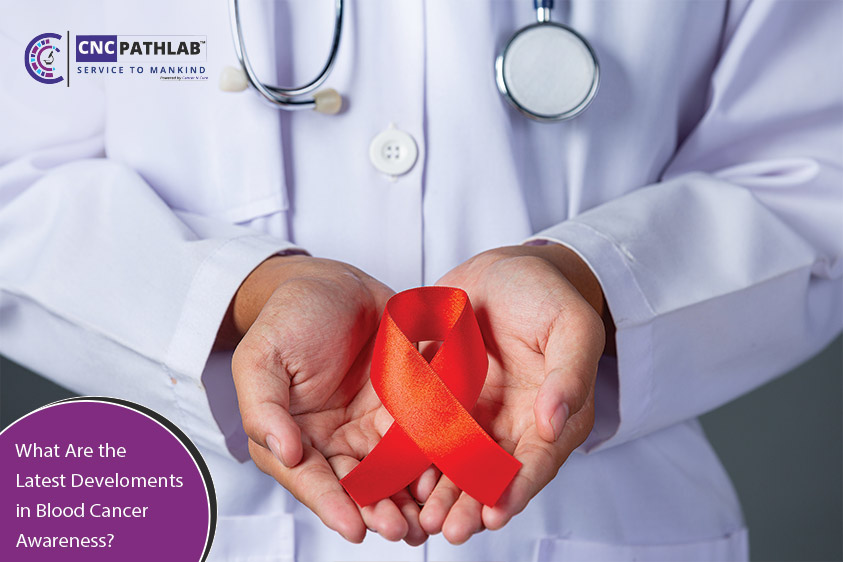Get Blood Home Collection in Delhi Right At Your Doorstep
Does Delhi offer home blood collection services?
Yes, Delhi does offer home blood collection services. Many diagnostic centers and laboratories in Delhi provide the convenience of collecting blood samples from the comfort of your home. This service is especially beneficial for patients who are unable to visit the laboratory or diagnostic center due to various reasons such as old age, illness, or disability.
Home collection in Delhi are carried out by trained phlebotomists who visit your residence at a scheduled time. They bring the necessary equipment and supplies to collect the blood sample safely and hygienically. The process is similar to the one followed at the laboratory or diagnostic center.
To avail of this service, you can contact the diagnostic center or laboratory of your choice and inquire about their home blood collection service. They will provide you with the necessary information and guide you through the process of scheduling an appointment for the phlebotomist to visit your home.
It is important to note that some diagnostic centers may have certain requirements or restrictions for Blood sample collection from home. They may have specific areas or locations within Delhi where they provide this service or certain conditions that need to be met. It is advisable to check with the diagnostic center beforehand to understand their terms and conditions.
Overall, home blood collection services in Delhi provide convenience and comfort to patients who require blood tests for diagnostic purposes. By availing of this service, patients can avoid the hassle of traveling to the laboratory or diagnostic center and get their blood tests done in the comfort of their own homes.
What is the process for getting blood collected at my home in Delhi?
Getting blood collected at your home in Delhi is a convenient option, especially for patients who are unable to visit a diagnostic center or hospital. The process for getting blood collected at your home typically involves the following steps:
1. Scheduling an Appointment: Contact a reliable diagnostic center or healthcare provider that offers home collection services for blood tests. You can either call their customer care helpline or book an appointment online.
2. Sharing Your Details: Provide your personal information such as your name, address, contact number, and any specific instructions related to your blood collection. This information will help the healthcare provider locate your residence easily.
3. Confirming the Test: Specify the blood tests you require when scheduling the appointment. It is essential to discuss this with your healthcare provider or consult a doctor to determine the specific tests you need for your medical condition.
4. Appointment Confirmation: Once you provide all the necessary details and test requirements, the diagnostic center will confirm your appointment. They will provide you with the date and time when their phlebotomist will visit your home for the blood collection.
5. Preparing for the Collection: To ensure a smooth blood collection process, you may need to follow certain guidelines. These guidelines may include fasting for a certain period before the test, avoiding certain medications or dietary restrictions, or drinking plenty of water.
6. Home Visit by Phlebotomist: On the scheduled date, a trained phlebotomist will visit your home to collect the blood samples. They will arrive with all the necessary equipment, including sterile needles, collection tubes, and bandages. The phlebotomist will follow proper hygiene and safety protocols to ensure a safe and comfortable blood collection experience.
7. Blood Collection: The phlebotomist will clean the area where the blood will be drawn and then insert the needle into a vein, typically in your arm. They will collect the required amount of blood into the collection tubes. This process is usually quick and relatively painless.
8. Post-Collection Care: After the blood collection, the phlebotomist will provide you with instructions on how to care for the puncture site and any post-collection precautions you may need to take. They will also provide you with information on when and how to receive your test results.
9. Blood Sample Transportation: The collected blood samples will be properly labeled and carefully transported to the laboratory for testing. The transportation process ensures the integrity and accuracy of the samples.
10. Test Results: Once the laboratory completes the testing process, the results will be generated. You can either collect the reports from the diagnostic center or have them delivered to your home, depending on the service provided by the healthcare provider.
It is important to note that home blood collection services should be availed from reliable and reputable healthcare providers. Look for centers or providers that have a good track record of maintaining the quality and accuracy of their services.
How much does it cost to get blood collected at home in Delhi?
Getting blood collected at home in Delhi can be a convenient option for patients who may have difficulty visiting a laboratory or clinic. The cost of having blood collected at home in Delhi can vary depending on several factors, including the laboratory or diagnostic center you choose, the type of tests required, and any additional services provided.
On average, the cost of getting blood collected at home in Delhi can range from Rs. 300 to Rs. 800 per visit, excluding the cost of the tests themselves. This cost generally includes the collection fee, transportation charges, and the service of a trained phlebotomist who will come to your home to collect the blood sample.
It is important to note that the cost of the actual blood tests will be separate and will vary depending on the specific tests requested by your doctor. The laboratory or diagnostic center will provide you with a detailed invoice for the tests, which you can pay separately.
To get an accurate estimate of the cost for blood collection at home in Delhi, it is recommended to contact different laboratories or diagnostic centers and inquire about their charges. Additionally, some hospitals and healthcare providers may offer packages or discounts for home blood collection services, so it's worth exploring different options.
Remember to discuss your specific requirements and any concerns about costs with your healthcare provider or the laboratory before scheduling the home blood collection service. They will be able to guide you regarding the most suitable options and provide you with the necessary information to make an informed decision.
How soon can I get blood collected at my home in Delhi?
If you are in Delhi and need to get your blood collected at home for diagnostic purposes, you'll be glad to know that there are several options available to you. Many healthcare providers and diagnostic laboratories offer home blood collection services in the city.
The exact timeframe for getting blood collected at home in Delhi can vary depending on the specific service provider and your location within the city. However, in most cases, you can expect to have your blood collected within 24 to 48 hours of scheduling an appointment.
To get blood collected at your home, you will typically need to make an appointment with the healthcare provider or diagnostic laboratory offering the service. This can usually be done through their website, phone call, or mobile app. During the appointment scheduling process, you will be asked to provide your address and contact details.
Once your appointment is confirmed, a trained phlebotomist will be dispatched to your home at the designated time. The phlebotomist will bring the necessary equipment and materials to collect your blood sample safely and efficiently. They will follow all necessary protocols and guidelines to ensure a hygienic and accurate collection.
After the blood is collected, it will be transported to the laboratory for testing. The exact turnaround time for receiving your test results will depend on the specific tests requested and the laboratory's processing time. However, it typically ranges from a few hours to a couple of days.
What are the requirements for home blood collection in Delhi?
If you are in Delhi and need to get a blood test done in the comfort of your own home, there are a few requirements you should keep in mind. Home blood collection services offer convenience and safety, especially for patients who may have difficulty visiting a laboratory or hospital. Here are the requirements for home blood collection in Delhi:
1. Prescription or Doctor's Request: You will need a valid prescription or doctor's request for the specific blood tests you need. This prescription will provide the necessary information about the type of tests required, including any specific instructions or fasting requirements.
2. Prior Appointment: Contact a reputable home blood collection service provider in Delhi and schedule an appointment for the collection. It is essential to book an appointment in advance to ensure the availability of a phlebotomist who will come to your home for the blood collection.
3. Address and Contact Details: Provide accurate information about your address and contact details while booking the appointment. This is important to ensure that the phlebotomist can easily locate your home and contact you if needed.
4. Fasting (if applicable): Some blood tests require fasting before the collection. Your doctor or the home blood collection service provider will inform you if fasting is necessary for your specific tests. If fasting is required, make sure to follow the instructions provided to get accurate test results.
5. Payment: Be prepared to make the payment for the home blood collection service. The cost may vary depending on the type and number of tests you need. Confirm the payment details with the service provider in advance to avoid any confusion or delays.
What to expect during the home blood collection process?
Once you have made the necessary arrangements and scheduled an appointment, a phlebotomist will come to your home at the designated time. Here are the steps you can expect during the home blood collection process:
1. Identification and Verification: The phlebotomist will ask for your identification to confirm your identity and ensure that the blood samples are correctly labeled.
2. Sterilization and Preparation: The phlebotomist will clean the area where the blood will be drawn using an antiseptic solution. They will also prepare the necessary equipment, such as sterile needles and tubes, to ensure a hygienic and accurate collection.
3. Blood Collection: The phlebotomist will then proceed to collect the required amount of blood, usually from a vein in your arm. They will use a sterile needle and a vacuum tube to draw the blood. You may feel a slight prick or discomfort during the process, but it should be relatively painless.
4. Labeling and Storage: After collecting the blood sample, the phlebotomist will label the tubes with your information to ensure proper identification. They will then store the samples safely and securely for transportation to the laboratory.
5. Post-Collection Instructions: The phlebotomist may provide you with post-collection instructions, such as applying pressure to the puncture site or avoiding strenuous activity for a certain period of time. It's important to follow these instructions to ensure proper healing and minimize any potential complications.
What happens after the blood collection?
After the blood collection process is complete, the phlebotomist will carefully package and transport your blood samples to the laboratory for analysis. The samples will be handled with utmost care to maintain their integrity and ensure accurate test results.
Once the samples reach the laboratory, trained technicians will process them and perform the necessary tests as prescribed by your doctor. The time required for the test results to be ready may vary depending on the type of tests requested. Your doctor or the home blood collection service provider will inform you about the expected turnaround time for your specific tests.
Once the test results are ready, your doctor will review and interpret them. They will then share the results with you and discuss any necessary follow-up actions or treatments based on the findings. It's important to consult your doctor for a thorough understanding of the results and their implications for your health.
Are there any safety protocols for home blood collection in Delhi?
Yes, there are safety protocols for home blood collection in Delhi to ensure the safety of both patients and healthcare professionals. These protocols are put in place to minimize the risk of contamination, infection, and ensure accurate and reliable test results.
1. Use of Personal Protective Equipment (PPE): Healthcare professionals who visit patients' homes for blood collection are required to wear appropriate PPE, including gloves, masks, and disposable aprons. This helps to prevent the transmission of pathogens and protects both the healthcare professional and the patient.
2. Proper Hand Hygiene: Before and after collecting blood samples, healthcare professionals must thoroughly wash their hands with soap and water or use alcohol-based hand sanitizers. This reduces the risk of spreading infections.
3. Sterile Equipment: All equipment used for blood collection, such as needles, syringes, and collection tubes, should be sterile and used only once. Disposable equipment is preferred to prevent cross-contamination and ensure patient safety.
4. Proper Disposal of Waste: After blood collection, all used needles, syringes, and other disposable items should be disposed of properly in puncture-proof containers. This prevents accidental needlestick injuries and potential transmission of bloodborne infections.
5. Labeling and Transport: Each blood sample should be properly labeled with the patient's details, including name, date, and unique identification number. The samples should be securely packed and transported to the laboratory for testing, following the necessary transportation guidelines to maintain sample integrity.
6. Infection Control Measures: In addition to the above safety protocols, healthcare professionals should also follow standard infection control measures during home blood collection in Delhi. This includes regularly cleaning and disinfecting their equipment, maintaining a clean and hygienic work environment, and practicing respiratory hygiene (covering their mouth and nose with a tissue or elbow when coughing or sneezing). These measures help to prevent the spread of infections and ensure the safety of both the healthcare professional and the patient.
Is there any special equipment needed for home blood collection in Delhi?
Yes, there is special equipment needed for home blood collection in Delhi. When collecting blood samples at home for diagnostic purposes, it is important to have the necessary equipment to ensure a safe and accurate collection process Blood test in delhi.
The following are some of the key equipment needed for home blood collection in Delhi:
1. Blood Collection Tubes: These tubes are used to collect and store the blood sample. They come in different sizes and are designed to preserve the integrity of the blood for accurate testing.
2. Lancets: Lancets are small, sharp needles used to prick the skin and create a small puncture for blood collection. They are typically single-use and ensure a quick and relatively painless blood draw.
3. Alcohol Swabs: Alcohol swabs are used to clean the area where the blood sample will be collected from. It helps to eliminate any surface bacteria and ensure a sterile site for blood collection.
4. Bandages or Adhesive Strips: After the blood sample is collected, it is important to apply a bandage or adhesive strip to the puncture site to prevent bleeding and promote healing.
5. Collection Trays: Collection trays are used to hold all the necessary equipment during the blood collection process. They provide a convenient and organized way to keep everything in one place and minimize the risk of contamination.


.jpg)


.jpg)
